Humans
Sign up for our newsletter
We summarize the week's scientific breakthroughs every Thursday.
-
 Genetics
GeneticsAlmost all healthy people harbor patches of mutated cells
Even healthy tissues can build up mutations, some of which have been tied to cancer.
-
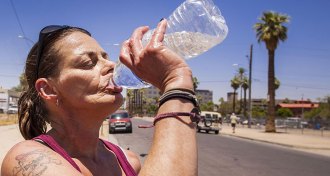 Health & Medicine
Health & MedicineLimiting global warming to 1.5 degrees C could prevent thousands of deaths in the U.S.
A study projecting heat-related mortality in 15 U.S. cities illustrates urban risk from global warming.
-
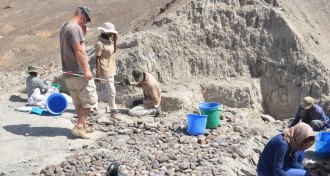 Anthropology
AnthropologyHominids may have been cutting-edge tool makers 2.6 million years ago
Contested finds point to a sharp shift in toolmaking by early members of the Homo genus.
By Bruce Bower -
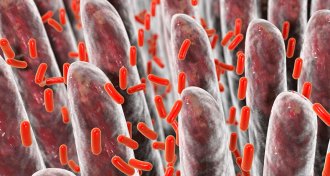 Life
LifeGut bacteria may change the way many drugs work in the body
A new survey of interactions between microbes and medications suggests that gut bacteria play a crucial role in how the body processes drugs.
-
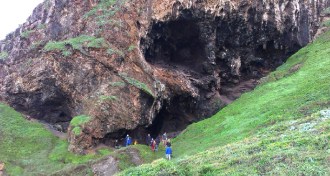 Archaeology
ArchaeologyCave debris may be the oldest known example of people eating starch
Charred material found in South Africa puts energy-rich roots and tubers on Stone Age menus, long before farming began.
By Bruce Bower -
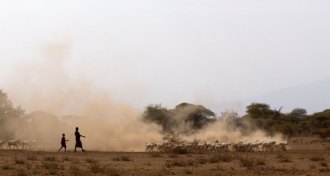 Anthropology
AnthropologyAfrica’s first herders spread pastoralism by mating with foragers
DNA unveils long-ago hookups between early pastoralists and native hunter-gatherers in Africa.
By Bruce Bower -
 Health & Medicine
Health & MedicineA fungus weaponized with a spider toxin can kill malaria mosquitoes
In controlled field experiments in Burkina Faso, a genetically engineered fungus reduced numbers of insecticide-resistant mosquitoes that can carry malaria.
-
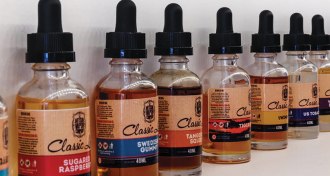 Chemistry
ChemistryVaping the sweetener sucralose may produce toxic chemicals
Sucralose in e-liquids can break down, increasing toxic aldehydes in vapors and producing harmful organochlorines, including a potential carcinogen.
-
 Health & Medicine
Health & MedicineResurgence of measles is a tale as old as human history
Editor in Chief Nancy Shute discusses the recent global measles outbreak and the history of the spread of pathogens.
By Nancy Shute -
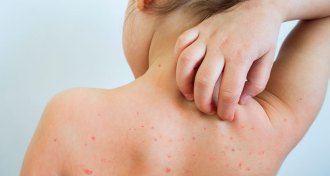 Health & Medicine
Health & MedicineOne number can help explain why measles is so contagious
The basic reproduction number, or "R naught," of measles shows how contagious the disease is compared with other pathogens.
-
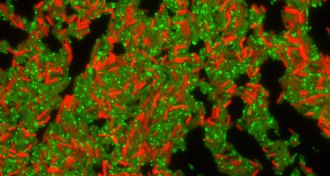 Life
LifeHow bacteria nearly killed by antibiotics can recover — and gain resistance
A pump protein can keep bacteria alive long enough for the microbes to develop antibiotic resistance.
-
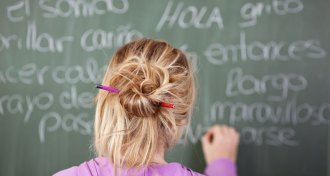 Health & Medicine
Health & MedicineBeing bilingual is great. But it may not boost some brain functions
A large study of U.S. bilingual children didn’t turn up obvious benefits in abilities to ignore distractions or switch quickly between tasks.